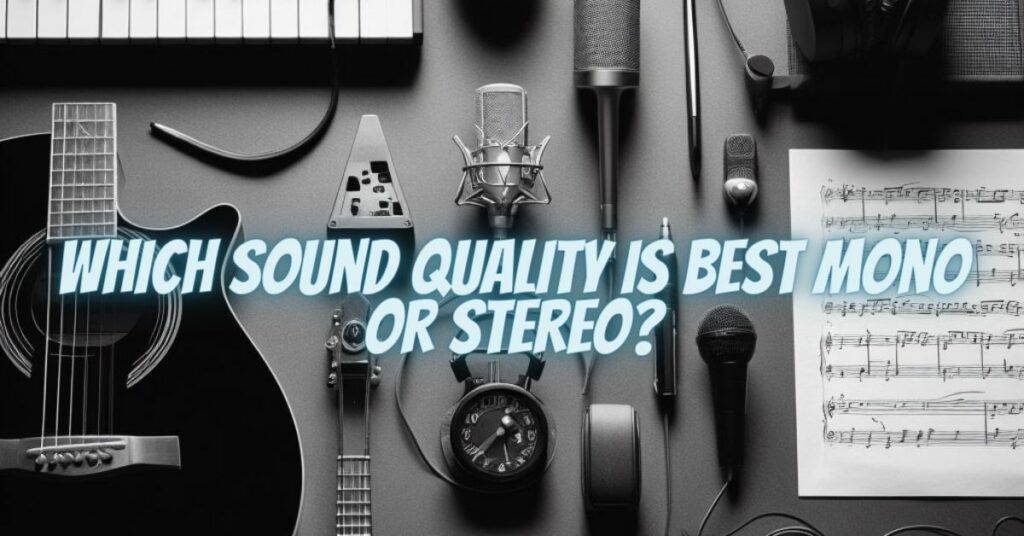Whether mono or stereo sound quality is better depends on a number of factors, including the type of content you are listening to, your personal preferences, and the playback system you are using.
Mono sound
Mono sound is a single channel of audio that is reproduced through a single speaker. It was the only type of sound available for many years, and it is still used in some applications today, such as telephone calls and public address systems.
Stereo sound
Stereo sound is a two-channel audio system that reproduces different sounds through separate speakers. This creates a more immersive and realistic listening experience, as it allows for the recreation of a three-dimensional soundstage.
Advantages of mono sound
- More focused and direct sound: Mono sound can be more focused and direct than stereo sound. This is because all of the sound frequencies are coming from a single source. This can be beneficial for certain types of content, such as spoken word recordings and podcasts.
- More compatible with older playback systems: Mono sound is more compatible with older playback systems, such as AM radios and mono record players. This is because these systems only have one speaker.
- Less likely to cause phase cancellation: Phase cancellation is a phenomenon that can occur in stereo sound when the same sound frequencies arrive at the listener’s ears at slightly different times. This can cause the sound to sound thin and weak. Mono sound is less likely to cause phase cancellation, as all of the sound frequencies are coming from a single source.
Advantages of stereo sound
- More immersive and realistic sound: Stereo sound can create a more immersive and realistic listening experience. This is because it allows for the recreation of a three-dimensional soundstage. This can be beneficial for music, movies, and other types of content that have a lot of spatial information.
- Better localization of sound sources: Stereo sound can help to better localize sound sources in the mix. This can be useful for creating special effects, such as directional bass and surround sound.
- More flexibility in mixing: Stereo sound gives you more flexibility when mixing your music. You can experiment with different panning and EQ settings to create the desired effect.
Which is better?
The answer to the question of whether mono or stereo sound is better is that it depends. There is no right or wrong answer. It depends on the type of content you are listening to, your personal preferences, and the playback system you are using.
Here are some additional things to consider when choosing between mono and stereo sound:
- The genre of music: Some genres of music, such as classical music and jazz, are typically mixed in stereo. This is because stereo sound can help to recreate the spatial realism of a live performance. Other genres of music, such as electronic music and hip hop, are often mixed in mono. This is because mono sound can be more powerful and focused, which can be beneficial for these genres.
- The playback system: If you are listening to music on a system that only has one speaker, such as a mono headphone or a Bluetooth speaker, then mono sound is the only option. If you are listening to music on a system that has two or more speakers, such as a home theater system or a pair of headphones, then you can choose between mono or stereo sound.
- Your personal preferences: Ultimately, the decision of whether to listen to music in mono or stereo is a matter of personal preference. Some people prefer the more focused and direct sound of mono, while others prefer the more immersive and realistic sound of stereo.
There is no right or wrong answer to the question of whether mono or stereo sound is better. It depends on the type of content you are listening to, your personal preferences, and the playback system you are using. Experiment with both mono and stereo sound to see what sounds best to you.


